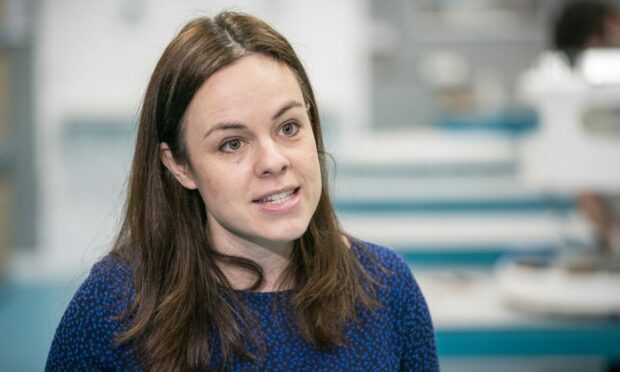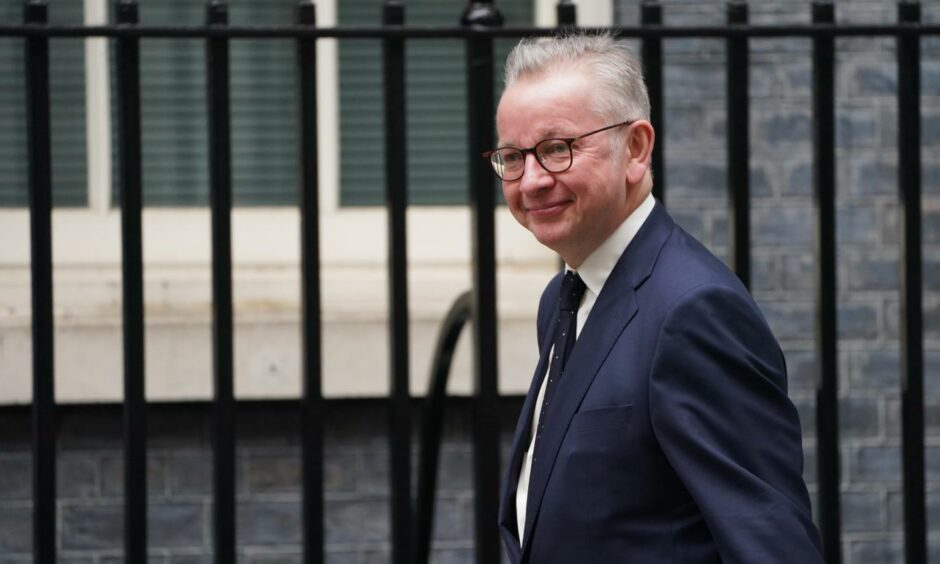The SNP has claimed the UK Government is refusing to agree to prioritise Scotland’s rural and island communities during the roll-out of a new £5billion superfast broadband scheme.
Economy Secretary Kate Forbes feared the current plans for “Project Gigabit” would create a new and more entrenched “digital divide” unless Tory ministers changed course.
In a letter to a Holyrood committee, she said the Scottish Government was still trying to find out details about the nation’s share of the cash, and a timetable for when it would become available.
But she claimed Conservative ministers had insisted there would be “no flexibility” for Scotland to direct the money towards areas which suffer from the worst connections.
About 46% of UK premises have a gigabit-broadband connection able to support download speeds of at least 1 gigabit per second.
The Westminster government is aiming for 99% by 2030, with 85% reached by 2025.
 Project Gigabit is designed to subsidise the 20% of the country that is “harder to reach” and will not be covered by private investment.
Project Gigabit is designed to subsidise the 20% of the country that is “harder to reach” and will not be covered by private investment.
In a letter to Holyrood’s economy committee, Ms Forbes has now raised concerns about the roll out of the investment north of the border.
“It is vital that Scotland benefits from the UK Governments’ £5 billion Project Gigabit, which we think could be rolled out effectively in parallel with R100 delivery,” she said.
‘No sense’
“As it stands, there is no sense of how much of the £5bn will be allocated to Scotland and no timescale for making any such commitment.
“Furthermore, we understand that the UK Government’s preferred approach for Project
Gigabit is to target the cheapest and easiest to reach premises across the UK, at the
expense of more costly rural premises.
“That would see Project Gigabit have far less of an impact in Scotland, where we have disproportionately more rural premises than other parts of the UK.”
The Skye, Lochaber and Badenoch MSP said she had written to UK Digital Infrastructure Minister Julia Lopez MP, and Levelling Up Secretary Michael Gove, about the issue.
But Ms Forbes had been “disappointed” with their responses, which she said
appeared to confirm that there will be “no flexibility for Scotland”.
The Commons public accounts committee reported in January that it was “not convinced” that the UK Government was on track to meet its Project Gigabit targets.
The group of MPs said it was relying too heavily on commercial providers rather than prioritising areas that were hardest to reach.
In her letter, Ms Forbes said: “Having seen the transformational impact that our R100 investment is having in island and remote rural communities, we will continue to make the case for flexibility, which would ensure that gigabit access can be extended to those most in need of future-proofed connectivity.
‘A new and more entrenched digital divide’
“Without it, Project Gigabit will not deliver what the public expects and is, in fact,
more likely to result in a new and more entrenched digital divide between the gigabit haves and have nots.”
A spokeswoman for the UK Government’s department for digital, culture, media and sport said: “A UK-wide programme saw £100 million spent to connect 740,000 premises in Scotland to superfast broadband.
“Now our new £5bn Project Gigabit is specifically focused on making sure hard-to-reach areas don’t miss out on even faster gigabit speeds.
“It will connect thousands more homes and businesses in Scotland that the Scottish Government’s R100 programme and commercial providers can’t cover.
“Locations will be determined by any gaps once the R100 areas have been confirmed and by the number of premises still in need.
“We can’t set a final funding allocation before these areas have been identified however we are assessing options – including wireless or satellites – to connect a small number of very hard to reach areas that it may be too difficult to reach with full fibre broadband.”

